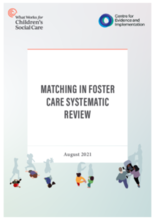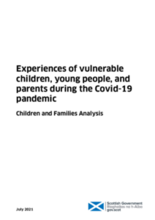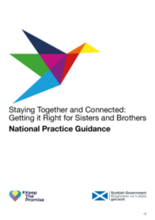Displaying 221 - 230 of 1185
A man with autism who has spent nearly half his life detained in a mental health hospital has been released after a long campaign by his mother.
Young people with experience of the care system have issued a checklist of issues they want to be addressed by the Care Review.
CELCIS, in partnership with Coram Voice, is bringing the ‘Bright Spots’ programme, with its two online wellbeing surveys, to Scotland. The pilot will provide local authorities a new opportunity to listen to the voices of their care experienced children and young people to drive local service provision and focus on change where children and young people say it is needed.
Save the Children International is seeking a Head of Programme for Child Protection (Permanent) in London or any existing Save the Children office location.
A Guardian investigation into the state of children’s services in the UK during the last 18 months has revealed a sharp rise in social services referrals during lockdown, plus spiralling costs for mental health support and a bulging backlog in the family courts, with some councils buckling under the weight of the extra work brought by coronavirus.
This event, hosted by CELCIS, will explore the theme of inclusion, experience and value in participation projects, and how organisations use different approaches, depending on the context.
A systematic review exploring the lived experience of matching children with foster families and examining the evidence on the outcomes of matching decisions.
This report presents findings from qualitative research conducted with a range of children, young people and parents in vulnerable or seldom heard groups, carried out to explore their lived experiences during and throughout the COVID-19 pandemic.
This document presents guidance supporting implementation of the new duties for Scottish local authorities: that every looked after child will live with their brothers and sisters, where appropriate to do so.
Update on administration and decision making work taking place since the The Redress for Survivors (Historical Child Abuse in Care) (Scotland) Bill was passed by Parliament in March 2021.




